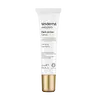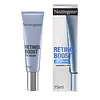What's inside
What's inside
 Key Ingredients
Key Ingredients

 Benefits
Benefits

 Concerns
Concerns

 Ingredients Side-by-side
Ingredients Side-by-side

Water
Skin ConditioningPentaerythrityl Tetraethylhexanoate
EmollientDimethicone
EmollientGlycerin
HumectantPPG-15 Stearyl Ether
EmollientStearyl Alcohol
EmollientCetearyl Alcohol
EmollientButylene Glycol
HumectantCeteareth-20
CleansingIsohexadecane
EmollientRetinol
Skin ConditioningHydrolyzed Myrtus Communis Leaf Extract
Skin ProtectingCaprylic/Capric Triglyceride
MaskingEthylhexylglycerin
Skin ConditioningSodium Hyaluronate
HumectantCaprylyl Glycol
EmollientPolyacrylamide
Cellulose
AbsorbentC13-14 Isoparaffin
EmollientLaureth-7
EmulsifyingDimethicone Crosspolymer
Emulsion StabilisingAmmonium Acryloyldimethyltaurate/Vp Copolymer
Disodium EDTA
Sodium Hydroxide
BufferingBHT
AntioxidantAscorbic Acid
AntioxidantPhenoxyethanol
PreservativeChlorphenesin
AntimicrobialWater, Pentaerythrityl Tetraethylhexanoate, Dimethicone, Glycerin, PPG-15 Stearyl Ether, Stearyl Alcohol, Cetearyl Alcohol, Butylene Glycol, Ceteareth-20, Isohexadecane, Retinol, Hydrolyzed Myrtus Communis Leaf Extract, Caprylic/Capric Triglyceride, Ethylhexylglycerin, Sodium Hyaluronate, Caprylyl Glycol, Polyacrylamide, Cellulose, C13-14 Isoparaffin, Laureth-7, Dimethicone Crosspolymer, Ammonium Acryloyldimethyltaurate/Vp Copolymer, Disodium EDTA, Sodium Hydroxide, BHT, Ascorbic Acid, Phenoxyethanol, Chlorphenesin
Alternatives
Ingredients Explained
These ingredients are found in both products.
Ingredients higher up in an ingredient list are typically present in a larger amount.
Ascorbic Acid is is pure Vitamin C. This form makes up the largest amount of vitamin C found naturally in our skin.
Not only is vitamin C great for your overall health and immune system, it also has plenty of benefits on your skin.
Vitamin C is best used for brightening skin. It improves dark spots, acne scars, and hyperpigmentation. This is because it blocks the process of skin darkening when exposed to UV.
Remember: Vitamin C should not replace sunscreen!
Your skin uses vitamin C to build collagen. Collagen is one key component in having a strong skin barrier and plump skin. Vitamin C also plays a role in regulating collagen, thus making it effective in improving wrinkles and fine lines.
Ascorbic acid shows potent antioxidant activity. As an antioxidant, it helps fight free-radicals. Free-radicals are molecules that may damage your skin cells. These antioxidants also protect skin against UV damage.
The best formulations include Vitamin E and/or ferulic acid. These two ingredients help stabilize and provide a boost in the benefits of ascorbic acid. This is because ascorbic acid becomes unstable when exposed to UV and air. In fact, you can tell your ascorbic acid has oxidized when it turns an orange-yellow color.
Ascorbic acid is generally compatible with other ingredients. However, using ascorbic acid with other active ingredients might cause irritation. Two ingredients: copper ions and benzoyl peroxide, will inactivate ascorbic acid completely.
Read more about other types of Vitamin C:
Foods rich with vitamin C include oranges, strawberries, broccoli, bell peppers, and more. When consuming Vitamin C, your skin receives a portion of the nutrients.
Learn more about Ascorbic AcidRetinol is a gold-standard ingredient for anti-aging. It is a form of Vitamin A and belongs to the class of retinoids that also includes tretinoin.
Why is retinol famous?
It has the most scientific studies backing up its skin benefits out of all the non-prescription ingredients.
Retinol is proven to:
This is why retinol is effective at removing wrinkles, fading dark spots, treating acne, and reducing the appearance of pores.
Studies show retinol is less effective when exposed to UV. Be sure to look for appropriate packaging to keep your retinol potent (similar to Vitamin C).
Using retinol or any retinoids will increase sun-sensitivity in the first few months. Though studies show retinoids increase your skin's natural SPF with continuous use, it is best to always wear sunscreen and sun-protection.
We recommend speaking with a medical professional about using this ingredient during pregnancy.
Retinol may cause irritation in some people, so be sure to patch test. Experts recommend 'ramping up' retinol use: start using this ingredient once a week and work up to using it daily.
Read about Tretinoin
Learn more about Retinol